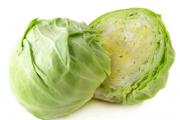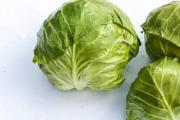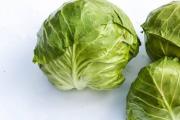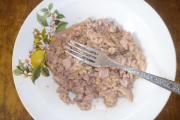The rate of cheese per day for a woman. How much dairy you need to eat to get your daily calcium intake. Potential harm of cheese to the body
Dear friends! Stay up to date with the latest nutritional news! Get new nutritional advice! Don't miss new programs, lessons, trainings, webinars! Let's slim together, because it's easier together! To do this, leave your contact details and you will not miss anything new and interesting. STAY IN TOUCH!
Cheese - everyone's favorite product sometimes undeservedly moves into the far corner of the refrigerator as extremely fatty and harmful for the figure ... Did you know that cheese is the leader in calcium content! So, 100 grams of hard cheese contains 1300 mg of calcium, which is 130% of the daily requirement. And unlike milk, this product is absorbed by 90%! But cheese contains 50% fat, you say…. So let's figure out what is cheese?
Cheese is made from milk, special lactic bacteria (sourdough) and rennet. Some cheeses also add butter. It turns out that cheese is a protein product with a decent fat content. And processed cheeses are very fatty, but more about them later.
Cheese is a fatty product ... or is it not?
Typically, there are 60, 50, 45 and 25% fat cheeses. Most often, we see two numbers on store shelves: 60% and 50%. And it seems to us that these are just crazy numbers, because you don't want to eat extra fats! And for those who are on a diet, such fats seem transcendental at all. However, do not rush to draw conclusions. Manufacturers indicate the percentage of fat in dry matter, and in the finished product, this fat content is reduced to 20-30%. And if you try and find a cheese in which the percentage of fat in dry matter is 25%, then this is an extremely dietary product. But there are pitfalls here too!
Are fatty dairy products higher in calcium, or not?
If you are told that fatty dairy products are healthier because they contain more calcium, this is not entirely true. Calcium and fat are not interconnected, it even happens on the contrary, manufacturers reduce the fat content of dairy products, but artificially enrich them with calcium. But don't fall for this trick!
The thing is that calcium is absorbed together with vitamin D. And this very vitamin D is absorbed with fats. Therefore, cheese (a product containing fat) brings so much calcium to our body, and at the same time vitamins A, E, D, B1, B12, essential amino acids and minerals!
Cheese consumption rate
And yet, you should not overuse cheese, as well as any other products. 30-50 grams of cheese a day is more than enough. And it is better if you eat it separately from the bread, and not as you are used to: in combination with sausage and a thick piece of loaf.
So what is the harm of your favorite cheese?
Everything is trite: there is a lot of salt in the cheese. Yes, cheese is an extremely salty product. It is the salt that spoils it, but unfortunately this product cannot be prepared without salt. The only thing you can do is soak the feta cheese before eating. It is enough to hold it in fresh milk or water for an hour for some of the salt to come out. This also applies to other pickled cheeses.
Types of cheeses
Cheeses differ in the following types (fats, proteins and calories are indicated per 100 g):
Hard cheeses: parmesan and its types, Swiss, cheddar, maasdam, emmental, gruyere, etc. (fat - 28-35 g; proteins - 23-33; kcal: 340-420)
Semi-hard cheeses : Russian, Lithuanian, creamy, Dutch, gouda, etc. (fat - 22-30 g; proteins -22-28; kcal - 330-350)
Pickled cheeses : suluguni, feta cheese, feta, Adyghe, mozzarella, etc. (fats -18-25; proteins - 17-25; kcal: 215-300)
Soft cheeses: all cheeses with mold: Camembert, Brie, Gorgonzola, Roquefort, etc. (fats - 30; proteins - 20; kcal - 350-400)
Processed cheeses : processed cheeses are made from milk, butter, cottage cheese and any other ingredients. As a rule, these are high-calorie cheeses. Their main danger is that, in addition to proteins and fat, they often contain carbohydrates (sweet cheeses, or with various additives). That is why processed cheeses are not recommended for overweight people. Processed cheese is bad for your figure.
History of the issue
Good quality food in schools and kindergartens is very important for maintaining children's health and learning ability.
Most of the school catering units in the Russian Federation were built before 1980 and do not meet modern requirements. Equipment with a high degree of wear is often used.
Bodies of sanitary and epidemiological supervision are taking measures up to the suspension of the work of the catering units. In most cases, the reasons are the unsatisfactory condition of the premises or equipment, the lack of the necessary equipment and inventory, non-compliance with sanitary standards and rules, the lack of the necessary medical certification among the personnel.
As a result of the operation of emergency rooms, violations of the temperature regime of storage of products and the rules of thermal and sanitary processing of products, equipment and inventory, poisoning of children occurs, sometimes massive.
Not so noticeable, but still significant problems are the use of too fatty, sweet or salty food, non-compliance with the mineral composition, lack of control over the quality of water, inconsistency in the outputs of ready-made meals, etc.
The reasons for the problems of catering in schools and kindergartens are inadequate funding, abuses in the procurement system for food and equipment, and lack of sufficient control.
The most complete coverage of the topic: "how much cheese a day you can eat" with a detailed analysis and recommendations from a professional nutritionist.
How much cheese can you eat per day?
Many people love cheese, and since there are a lot of types of cheese, everyone, even the most capricious person, can choose a variety to their liking. And cheese is a rare exception to the rule that everything tasty is harmful. The presence of calcium, vitamins A and E, amino acids, fatty acids and phosphorus in cheese makes cheese a truly healthy product. For an adult, it will be enough to eat 150-200g. hard cheeses to meet the daily need for calcium in the body.
I think as much as you like, if you are not allergic to milk protein. There is nothing in cheese to limit oneself in its use. In the Caucasus, I could eat half a kilogram of fresh feta cheese at a time and did not experience any problems.
I love cheese and I am ready to eat it every day in large quantities, its rather big price stops it, with our salaries you will not accelerate much.
Like all products, cheese also needs to be consumed in moderation, since this product is high in calories and contains a lot of fat, so I think that one hundred grams per day will be quite enough.
And the benefit was received and pleasure and will not be strongly reflected on the figure.
It is healthy to eat hard cheese (like parmesan)
It's good to eat a wedge of cheese at night.
promotes better absorption of carbohydrates and
good restful sleep. Cheese boosts
blood pressure is useful for
anemia. and in 100 gr. hard cheese 45 kilocalories.
Cheese is a dairy product and therefore healthy, but it is not recommended to eat a lot and it is not recommended, since there is a lot of animal fat in the cheese and this fat creates cholesterol plaques and thus harms health, therefore it is recommended to eat no more than 30-50 grams of cheese per day, and if cheese is hard and salty, then 20-30 grams is better.
Cheese is a fairly healthy food.
However, there are some restrictions on the amount of daily serving, which are primarily caused by its impressive calorie content.
Thus, the most acceptable would be the use of about one hundred grams of cheese per day.
If you want and there is no allergy, then how many will fit until you vomit, and then a little more.
Cheese is very healthy, eat as much as you like. The mountain dwellers eat a lot of cheese, meat and greens and wash it down with good red wine, they live for 100 years.
Depends on the quality and type of cheese.
Some manufacturers add palm oil during the preparation process. Such cheese, as well as processed cheese, should be discarded.
You can eat 70-100 grams of high-quality hard cheese per day and remain confident in its benefits. A larger amount will lead to an excess of salt in the body.
You can eat a little less cheese with mold, 50-70 grams per day.
The amount of homemade grainy cheese (similar to cottage cheese) can be increased to 200 grams due to its dietary properties.
Cheese is a valuable food product due to the balance of minerals and the content of amino acids useful for humans.
according to food standards 20 grams per day, but in general as much as your heart desires
Cheese at the same time is a delicious and healthy product, therefore it is very, very late for the body to use it. However, the calorie content of cheese limits its daily consumption to 50, to a maximum of one hundred grams per day.
In fact, in fact, in fact, cheese is a very high-calorie food product, although very healthy. I think that in order not to gain weight, you can eat up to about 50 grams of this milk miracle a day. If you love it so much, then you should choose cheese with a low fat content, for example from goat milk.
We all love cheese, because it is tasty, healthy and available to everyone. As a rule, this milk processing product is found in our diet almost every day. Do we always think about the benefits and harms of cheese, in which cases this product should be limited in the diet and in what quantities it can be consumed daily without harm to health?- It is a good source of complete protein - a building material for the cells of our body (it contains essential amino acids, including a large amount of tryptophan, which is necessary for normal brain function, combating stress and depression)
- Vitamins (fat-soluble - A, E, D, water-soluble - C, PP, B1, B2, B12, pantothenic acid) ensure normal metabolism, help to strengthen the immune system, cardiovascular and nervous system, maintain the normal condition of the skin
- A large amount of macro- and microelements, and above all calcium and phosphorus, necessary for the normal functioning of the musculoskeletal system, the brain and other organs and systems of the body
- Cheese is well and almost completely absorbed in the gastrointestinal tract, its calorie content is quite high (about 300 kcal per 100 g), which makes it possible to use this product to quickly replenish the body's energy costs with increased physical exertion, neuropsychic stress and great mental overload. during the recovery period after illnesses.
Yes, if you eat it in large doses every day for a long time.
- Cheese contains a fairly large amount of milk fat (up to 30-40%), which means saturated fatty acids and cholesterol, which increase the risk of developing atherosclerosis and related diseases. High in hard cheese and calorie content, which can lead to the appearance of extra pounds. Therefore, with obesity and overweight, as well as after the age of 40, it is better to eat soft cheeses (for example, mozzarella) in small quantities, as well as cottage cheese (3-5%) or soy tofu cheese, 100 g of which contains only 76 kcal.
So how much cheese can you eat with health benefits? If you count on the safe content of casein and calcium, then daily without harm you can eat 30-50 g of hard cheese or 100-150 g of cottage cheese or 400-500 g of whole milk, kefir or yogurt. That is, if you ate 50 g of hard cheese today, then you have already fulfilled your daily dose for dairy products.
Research on the dangers of cheese in terms of increasing the risk of bladder cancer suggests that a safe daily intake of cheese is 50 grams (maximum 53 grams).
These are the pies (in the sense of pizza) ... I would like to note that the constantly conducted research often contradicts each other, so one cannot take them for an immutable truth. Only one thing is clear - a measure is needed in everything. A varied diet, in which all healthy food products are periodically presented in moderate quantities (meat and fish, cottage cheese and cheese, cereals and pasta, vegetables and fruits, berries and nuts ...), will only benefit us. And the data presented in the article will be able to warn the most fanatical cheese lovers who consume this product at 300-500 g per day for a long time.
Group 1: animal protein:
10g of animal protein is 50g of meat or fish, or poultry, or seafood = from 40g (if yellow cheese) up to 60g (if white cheese) cheese up to 45% fat = 80g cottage cheese up to 6% fat = 100g cottage cheese casserole = 2 cheesecakes 2 chicken eggs = 3 chicken proteins = 300 ml of milk (milk or kefir, or yogurt, or fermented baked milk, etc.) n.) = 6 non-vegetarian rolls (additionally contain 2 servings of carbohydrates).
Example: 35g of protein per day is 2 eggs + 150g of meat / fish / poultry per day. Or 160g of cottage cheese + 150g of yogurt + 50g of cheese per day.
Group 2 carbohydrates + vegetable proteins:
One serving is 10-15g of carbohydrates = 1 slice of bread (½ slice from a "brick" 0.5 cm thick, weighing 25-30g) = 2 loaves = 2 heaped tablespoons (50g or ½ cup) garnish ready-made (porridge, rice, mashed potatoes, legumes, corn) = 4 tablespoons with a slide (50g or 1 glass) pasta = 1 potato the size of egg(about 65g weight) = ½ corn pump = 3 rolls
Example: 5 servings per day is 125g of bread (2.5 full cuts from a brick) per day. Or 5st. spoons of porridge + 5 loaves per day, etc.
50g vegetables = 1 cup of leafy greens without tamping.
120g fruit (apples, tangerines, oranges, grapefruit, pomegranate, etc.) = 1/2 cup freshly squeezed juice = 1/4 cup dry or canned fruit = 1 cup berries, incl. grapes = 80g sweet fruits (persimmon, banana, melon) = 300g watermelon.
Vegetable fat: 1 tablespoon vegetable oil(olive + any other in a 1: 1 ratio) = 10g fat = 6-10 nuts (20g) = 1 tbsp. a spoonful of seeds (20g) = 15 olives = 10 olives = 40g avocado
Animal fats: 20g butter = 16g fat = 100g 15% sour cream = 50g 30% sour cream = 2 tbsp. spoons of dressing / sauce
How much cheese can you eat per day?
Many people love cheese, and since there are a lot of types of cheese, everyone, even the most capricious person, can choose a variety to their liking. And cheese is a rare exception to the rule that everything tasty is harmful. The presence of calcium, vitamins A and E, amino acids, fatty acids and phosphorus in cheese makes cheese a truly healthy product. For an adult, it will be enough to eat a gr. hard cheeses to meet the daily need for calcium in the body.
I think as much as you like, if you are not allergic to milk protein. There is nothing in cheese to limit oneself in its use. In the Caucasus, I could eat half a kilogram of fresh feta cheese at a time and did not experience any problems.
I love cheese and I am ready to eat it every day in large quantities, its rather big price stops it, with our salaries you will not accelerate much.
Like all products, cheese also needs to be consumed in moderation, since this product is high in calories and contains a lot of fat, so I think that one hundred grams per day will be quite enough.
And the benefit was received and pleasure and will not be strongly reflected on the figure.
It is healthy to eat hard cheese (like parmesan)
It's good to eat a wedge of cheese at night.
promotes better absorption of carbohydrates and
good restful sleep. Cheese boosts
blood pressure is useful for
anemia. and in 100 gr. hard cheese 45 kilocalories.
Cheese is a dairy product and therefore healthy, but it is not recommended to eat a lot and it is not recommended, since there is a lot of animal fat in the cheese and this fat creates cholesterol plaques and thus harms health, therefore it is recommended to eat not a large gram of cheese per day, but if the cheese is hard and salty then the best gram.
Cheese is a fairly healthy food.
However, there are some restrictions on the amount of daily serving, which are primarily caused by its impressive calorie content.
Thus, the most acceptable would be the use of about one hundred grams of cheese per day.
If you want and there is no allergy, then how many will fit until you vomit, and then a little more.
Cheese is very healthy, eat as much as you like. The mountain dwellers eat a lot of cheese, meat and greens and wash it down with good red wine, they live for 100 years.
Depends on the quality and type of cheese.
Some manufacturers add palm oil during the preparation process. Such cheese, as well as processed cheese, should be discarded.
Quality hard cheese can be eaten grams per day and remain confident in its benefits. A larger amount will lead to an excess of salt in the body.
Blue cheese can be eaten a little less, grams per day.
The amount of homemade grainy cheese (similar to cottage cheese) can be increased to 200 grams due to its dietary properties.
Cheese is a valuable food product due to the balance of minerals and the content of amino acids useful for humans.
according to food standards 20 grams per day, but in general as much as your heart desires
Cheese at the same time is a delicious and healthy product, therefore it is very, very late for the body to use it. However, the calorie content of cheese limits its daily consumption to 50, to a maximum of one hundred grams per day.
In fact, in fact, in fact, cheese is a very high-calorie food product, although very healthy. I think that in order not to gain weight, you can eat up to about 50 grams of this milk miracle a day. If you love it so much, then you should choose cheese with a low fat content, for example from goat milk.
Cheese - proteins or fats, harm or benefit?
Dear friends! Stay up to date with the latest nutritional news! Get new nutritional advice! Learn from the experience of other slimming people! Feel the support from the members! Don't miss new programs, lessons, trainings, webinars! Let's slim together, because it's easier together! To do this, leave your contact details and you will not miss anything new and interesting. STAY IN TOUCH!
Cheese - everyone's favorite product sometimes undeservedly moves into the far corner of the refrigerator as extremely fatty and harmful for the figure ... Did you know that cheese is the leader in calcium content! So, 100 grams of hard cheese contains 1300 mg of calcium, which is 130% of the daily requirement. And unlike milk, this product is absorbed by 90%! But cheese contains 50% fat, you say…. So let's figure out what is cheese?
Cheese is made from milk, special lactic bacteria (sourdough) and rennet. Some cheeses also add butter. It turns out that cheese is a protein product with a decent fat content. And processed cheeses are very fatty, but more about them later.
Cheese is a fatty product ... or is it not?
Typically, there are 60, 50, 45 and 25% fat cheeses. Most often, we see two numbers on store shelves: 60% and 50%. And it seems to us that these are just crazy numbers, because you don't want to eat extra fats! And for those who are on a diet, such fats seem transcendental at all. However, do not rush to draw conclusions. Manufacturers indicate the percentage of fat in dry matter, and in the finished product, this fat content is reduced to%. And if you try and find a cheese in which the percentage of fat in dry matter is 25%, then this is an extremely dietary product. But there are also pitfalls here!
Are fatty dairy products higher in calcium, or not?
If you are told that fatty dairy products are healthier because they contain more calcium, this is not entirely true. Calcium and fat are not interconnected, it even happens on the contrary, manufacturers reduce the fat content of dairy products, but artificially enrich them with calcium. But don't fall for this trick!
The thing is that calcium is absorbed together with vitamin D. And this very vitamin D is absorbed with fats. Therefore, cheese (a product containing fat) brings so much calcium to our body, and at the same time vitamins A, E, D, B1, B12, essential amino acids and minerals!
Cheese consumption rate
And yet, you should not overuse cheese, as well as any other food. Grams of cheese per day is more than enough. And it is better if you eat it separately from the bread, and not as you are used to: in combination with sausage and a thick piece of loaf.
So what is the harm of your favorite cheese?
Everything is trite: there is a lot of salt in the cheese. Yes, cheese is an extremely salty product. It is the salt that spoils it, but unfortunately this product cannot be prepared without salt. The only thing you can do is soak the feta cheese before eating. It is enough to hold it in fresh milk or water for an hour for some of the salt to come out. This also applies to other pickled cheeses.
Types of cheeses
Cheeses differ in the following types (fats, proteins and calories are indicated per 100 g):
Hard cheeses: parmesan and its types, Swiss, cheddar, maasdam, emmental, gruyere, etc. (fat; proteins - 23-33; kcal :)
Semi-hard cheeses: Russian, Lithuanian, cream, Dutch, Gouda, etc. (fat - g; proteins; kcal -)
Pickled cheeses: suluguni, feta cheese, feta, Adyghe cheese, mozzarella, etc. (fats; proteins - 17-25; kcal :)
Soft cheeses: all cheeses with mold: Camembert, Brie, Gorgonzola, Roquefort, etc. (fat - 30; protein - 20; kcal -)
Processed cheeses: Processed cheeses are made from milk, butter, cottage cheese and any other ingredients. As a rule, these are high-calorie cheeses. Their main danger is that, in addition to proteins and fat, they often contain carbohydrates (sweet cheeses, or with various additives). That is why processed cheeses are not recommended for overweight people. Processed cheese is bad for your figure.
Based on all that has been said, we can conclude that the fatter the cheese, the richer in proteins. Hard cheeses are leaders in protein, fat and vitamins!
The author of the article: Alexandra Petrovicheva (nutritionist psychologist). I help people gain harmony, teach them how to eat right, get rid of addiction to sweets, overeating and psychological dependence on food.
very informative - thank you very much
I'm a syromank. But lately I've been choosing low-fat cheese. Lung type.
Thanks for the interesting article!
A raw food diet is not suitable for everyone. It is necessary that the digestive tract organs are absolutely healthy in order to eat everything raw.
Your comment Cancel reply
© 2018 Eat boldly Copying site materials without permission is prohibited
Individual entrepreneur Petrovicheva Alexandra Anatolyevna OGRNIP071204
Cheese is the norm per day
Today our menu has a wonderful dessert based on the basics.
Seafood, including squid, is well known.
The beginning of the season of fruits and vegetables is always abundant.
Some comrades say vegetable fats are a sign.
The most correct oatmeal- from whole oats. ...
Subtropical eucalyptus is a real find for le.
Ordinary buckwheat with mushrooms in a slow cooker can be.
Cheese can only be adored or hated. However, there are not so many “haters” of the product, if you did not appreciate it at its true worth, it means that you simply did not find “your own” type of cheese. There are more than 500 species and whole varieties of this product in the world. Almost every country and civilization has given us its own kind of cheese. Greeks - soft feta, French - mature spicy cheeses, Russians - homemade cheese, Bulgarians - feta cheese. In such a sea it is not long and "drown", but it is definitely worth understanding the properties of cheese, if only because this product can be both very useful, almost healing, and quite harmful, and in some cases, almost toxic.
Useful properties of cheese
First of all, any cheese "inherits" the beneficial properties of the milk from which it is made. A complete amino acid composition, a wealth of "soothing" tryptophan, and some milk fat are all about cheese. By the way, you shouldn't be afraid of cheese fats in moderation. Recent studies in the field of dietetics have proved that cheese a day is an acceptable norm even for the most strict diet, because milk fat in small quantities can reduce appetite.
Cheese is rich in minerals - calcium, zinc and phosphorus. This combination allows this product to be considered indispensable in the diet of people who, for some reason, cannot tolerate whole milk, seafood, and fish. That is why cheeses are recommended for vegetarians who consume dairy products. When combined with green vegetables, a serving of cheese provides the effect of saturating the indicated minerals.
Some types of cheese are rich in vitamin A, while others are enriched with B vitamins, especially famous for this goat cheese... This is what allows most sources to believe that cheese is good for the skin, helps to improve vision, and strengthen the hair follicles.
A big plus of cheeses is that many of them do not contain lactose, and therefore can be used in the diets of children and adults with an allergy to this milk protein.
Few people know, but cheese is used not only "for its intended purpose", but also as a component for numerous homemade beauty recipes. So, there is a nutritious maskag of fatty cheese grate, mix with 2-3 yolks, apply for 20 minutes on the skin of the face and neck, then rinse with plenty of warm water.
Cheese harm
Usually, due to harm, they recall the high calorie content of cheese, and, as a result, the risk of gaining extra pounds with excessive hobby. This is true only for high-calorie cheeses such as Brie, fat Camembert, and even our usual "Russian" and "Poshekhonsky". If you are trying to lose weight, eat low-fat cheese, ricotta and light versions of hard cheeses, being careful not to go over the norm per day for cheese, whose calories are closer to calories, and for higher-calorie foods.
Ripe cheeses often cause stomach upset, as they contain bacteria that are atypical for our traditional diet. Some "cheese" bacteria can cause listeriosis - a rather dangerous disease. Therefore, exotic cheeses and cheeses with molds are the product that should be avoided by people with sensitive stomachs, pregnant women, and nursing mothers. Mature and spicy cheeses can also aggravate acne and should be avoided for skin conditions. Spicy and spicy cheeses are also not recommended for stomach diseases, gastritis, colitis, and ulcers of various nature.
The connection between the high content of milk fat in some cheeses and high "bad" cholesterol in the blood is also quite direct. Remember that even if you are not trying to lose weight and are not counting calories, eating 200 grams of full-fat cheese a day is not a good idea, if only because it can cause high cholesterol. Fatty cheeses are not recommended for people with liver diseases. And some scientists believe that an "overdose" of the amino acid tryptophan leads to sleep disturbances. So eat cheese in moderation and sleep well.
Especially for Your-Diet.ru - fitness trainer Elena Selivanova
Many more interesting things:
Copyright © TvoyaDieta.Ru - the most interesting and relevant information for losing weight!
When using materials, a direct hyperlink to the site your-diet.ru is required.
Before using it in practice, be sure to consult your doctor.
Test purchase
Daily rate of cheese. Test purchase. Fragment of the release from 12/09/2014
Cheese is the leader in the amount of calcium per 100 g of all dairy products, it is a source of saturated animal fat and protein. It is recommended to eat no more than 70 grams of cheese per day
Together with this they look
Control raid with Anton Privolov. Test purchase. Fragment of the release from 02/04/2016
Control raid with Natalia Semenikhina. Test purchase. Fragment of the release from 03.24.2016
What's in Natalia Semenikhina's refrigerator? Test purchase. Fragment of the release from 09/11/2017
Control raid with Anton Privolov. Test purchase. Fragment of the release from 04/15/2016
Anton Privolov answers. Good morning. Fragment of the release from 11/30/2017
Anton Privolov answers. Good morning. Fragment of the release from 12/21/2017
Anton Privolov answers. Good morning. Fragment of the release from 11/23/2017
Anton Privolov answers. Good morning. Fragment of the release from 12/07/2017
Anton Privolov: "I was worried that I was taking someone else's place." Alone with everyone. Fragment of the release from 10/20/2015
Anton Privolnov: a quick survey. Alone with everyone. Fragment of the release from 10/20/2015
Diction lesson from Anton Privolov. Alone with everyone. Fragment of the release from 10/20/2015
Guest Anton Privolov. Alone with everyone. Release of 10/20/2015
My subscriptions:
Full or partial copying of materials is prohibited.
With the agreed use of site materials, a link to the resource is required.
The embed code for blogs and other resources posted on our site can be used without approval.
Broadcasting of the air is possible only when using the player and the online broadcasting system of the First Channel.
Mirtesen
Today, for almost everyone, cheese is an integral part of the diet. Cheese is a great snack for every day. But it is worth asking the question, is it good for the body? As it turned out, opinions differ on this matter. Some believe that cheese is simply necessary for a person, others believe that this product brings more harm than good to the body.
Research has shown that cheese is an excellent source of micronutrients and beneficial vitamins. Others, however, revealed to us the truth that the product is too high in calories and fatty, and should not be eaten. So today we will look into this issue. And we will dispel all speculation about cheese.
Cheese dream: beneficial properties
We'll start with the health benefits of cheese. And let's find out if it is good for the body at all? The main component of all cheeses is protein. As you know, our body requires protein to form new cells. The protein in the cheese becomes soluble. And thanks to this, it is almost completely absorbed in the body. We can assume that without a trace. There is even more protein in cheese than in the meat itself.
Cheese contains phosphorus and calcium. You need to eat only 70 g of cheese per day for an adult to get the daily calcium requirement. The product boasts a high content of vitamins A and B, and also contains amino acids (lysine, methionine, tryptophan) that are necessary for humans. Cheese is essential in the diet. It must be eaten by children, pregnant and lactating women, and sprouts. A dairy product supports the body well during bone fractures.
In addition, cheese is an irreplaceable source of milk fat. Ask why are they needed? Milk fats help the digestive system and have a beneficial effect on the body's metabolism. Most of these substances are found in fatty cheeses. They taste more delicate.
If you eat a couple of slices of cheese a couple of hours before bedtime, it will provide you with a sound and healthy sleep. Therefore, you can make yourself a daily snack before bedtime: a couple of slices of cheese and a glass of kefir.
Cheese is made from milk. Therefore, conclude that it contains all those useful trace elements that are in milk, but only in concentrated form. 1 liter of milk contains the same amount of vitamin as 100 g of cheese.
Negative sides of cheese
We have already understood that a cheese product is healthy. But the world is not black and white. Therefore, even cheese has two sides. It is useful, but on the other hand, it also has its own "harmful" sides. So let's take a look at these options.
Now they sell a lot of spicy and salty types of cheese. They negatively affect your stomach. Therefore, it is worth abandoning such a product. This is especially true for people who suffer from stomach ulcers and gastritis. It is not recommended to eat salty and spicy cheese for hypertension.
In addition, cheese is a product of rough processing. And with the constant consumption of such a food product, kidney stones may appear. This does not mean that you can no longer eat cheeses. Of course not! You need to eat cheeses. You just need to limit yourself to some varieties. Eliminate spicy yellow varieties and opt for curd cheeses.
The healthiest cheese
How many cheeses are on the shelves in the supermarket? And which one is healthy and tasty? Hard question! But we will try to answer all the same. Often, near the shelves with cheese, we feel like "losses", because you can miscalculate and buy too salty or spicy cheese. Each variety boasts different health benefits. Let's get started.
- Suluguni. One of the most popular cheeses. It is usually prepared from pasteurized milk of a cow, goat and even a buffalo. It improves human appetite and stimulates the intestines, thereby having a beneficial effect on metabolism. If prepared correctly, then it is very useful for a person.
- Adyghe cheese. This type of cheese must be made from sheep's milk. The cheese is pre-matured in brine when exposed to bacteria - Bulgarian bacillus. This cheese is very fatty, but it contains all the useful vitamins for the body. If a person has lactose intolerance, then this cheese should be discarded. It is stored for only a month after production. So be careful not to buy an expired product.
- Curd cheeses. This is the safest type of cheese for the body. It can be consumed daily. It does not create discomfort for the body and saturates it with calcium. It can be used during diets and included in baby food.
- Blue cheeses. Cheeses such as Brie and Dor Blue boast of their bactericidal properties. They are very beneficial for digestion. Brie cheese ripens with penicillin mushrooms in special cellars. And after a long ripening, white fluffy mold appears on the surface of the cheese. But for the manufacture of Dor Blue, mushroom blue mold is used. Mold improves bowel function and helps in the synthesis of vitamin B. So this cheese is definitely good for humans. Cheese is prepared based on unsterilized milk, so it is not recommended for pregnant women and children. These cheeses are quite high in calories.
- Parmesan. Delicious Italian cheese. Not a single pasta in Italy has done without this cheese. It can be stored for 10 years when correct preparation it contains almost no cholesterol. Parmesan is healthy and can be eaten by everyone, without exception.
- Processed curds. This is where the usefulness question comes in. Looking at the packaging with processed cheese, you immediately think how much is crammed there. If, of course, the cheese was made without chemical and food additives, then you should think about its usefulness. Good processed cheese must be prepared from natural ingredients and contain B vitamins, phosphorus, calcium and casein.
- Feta. Delicious cheese originally from Greece. It is made from sheep or goat milk. It contains a large amount of antibiotics that protect your body from food poisoning. Therefore, feta cheese is considered beneficial for the body.
Today we learned that cheese is more good for the body than bad. There are varieties of cheeses that should be avoided, but most delicious cheeses are good for the body and should be included in the daily diet. Useful properties almost all varieties possess. Many of them contain cholesterol, but Parmesan is an exception to the rule. Now we know the answer to the question about the health benefits of cheese. In everything you need to know when to stop. Do not eat a big cheese a day, and that will be enough. We wish you bon appetite and culinary delights with cheese!
Reactions to the article
Comments (1)
Reactions to a comment
Reactions to a comment
Reactions to a comment
Reactions to a comment
Facebook Comments
- © 2007–2018. When using the materials, mentioning the site "Councils of People's Wisdom" is obligatory
Suspicious activity has been registered from your account. For your safety, we want to make sure it's really you
Cheese: benefits and harms
Comments 2
Good day! I'm wondering ... Isn't excess calcium excreted naturally from the body?
It's just that we get calcium not only from cheese and dairy products!
Excess calcium simply does not have time to be excreted from the body if it is ingested daily in large quantities with food. Moreover, it is most often simply deposited on the walls of blood vessels, in the form of stones - in the kidneys, etc. What to do is to consume calcium in moderation. You can check the level of calcium - take a blood test
The benefits and harms of cheese for the body
For the body to work harmoniously, you need to eat right. The daily menu should include a wide range of foods filled with the daily requirement of vitamins, minerals and other nutrients. And of course, dairy products are essential in the diet of a healthy person. One of the tasty and healthy representatives of this food category is cheese.
To date, more than seven hundred varieties of delicacy are known, differing in taste and manufacturing methodology. This product, however, is rich not only in approving properties, but also has restrictions on the use.
Composition and calorie content of cheese
Cheese is made from cow, goat or sheep milk, various technologies are used. Today there is a wide assortment of this product, from which you can choose the taste according to your preferences.
The beneficial properties of cheese are due to its composition, which includes valuable elements, minerals and nutrients:
- vitamins A, groups B, E, PP, C;
- amino acids that are not synthesized by human internal organs and systems: lysine, methionine, tryptophan;
- potassium and magnesium, phosphorus and zinc, iron and calcium.
Cheese is well absorbed in the digestive system of even a child's body. Therefore, the inclusion of such a meal in the weekly diet is highly recommended by nutritionists.
The calorie content of a dairy delicacy differs quite significantly depending on the variety and percentage of fat content. Diet types like Adyghe cheese have 240 calories for every 100 grams.
Bold versions (gouda, maasdam, Dutch, Russian) contain pokkal. You can eat no more than 50 grams of such nutritious products per day, low-calorie varieties - 70 grams each.
Cheese Eating Options
Cheese saturates well and relieves hunger for a long time. Last time on holiday tables cheese platters formed from different product variants and served with berry jam or flowing transparent honey became popular.
In addition, cheese is served with red or white wine drinks added to salads.
Its taste is harmoniously combined with fruits and vegetables. A popular type of decoration is canapes made from pieces of dairy products, alternating with green grapes or pear slices.
Useful characteristics of cheese
For most people, cheese is considered a very healthy food. It has absorbed the advantages of milk, on the basis of which it is created:
- The product is a supplier of protein, fats, amino acids, minerals and vitamins. This product is a godsend for individuals who are lactose intolerant, why they might be deprived of the nutrients contained in milk.
- Cheese is especially valuable as a source of calcium, which is necessary for the strength of the bone skeleton. Hard varieties can prevent tooth decay. A dairy product can make up for mineral deficiencies in smokers and the elderly.
- Vitamins from group B, which are part of the product, are responsible for the mechanism of hematopoiesis, increase efficiency, and activate oxygen exchange in tissues.
- It has been found that cheese helps to reduce stress, is the prevention of visual impairment, and normalizes blood pressure. The product also improves the quality of sleep, has a beneficial effect on the condition of the hair and skin, nail plates, and improves metabolism.
- Cheese is indicated for tuberculosis.
- It is highly recommended during pregnancy and lactation. It is undoubtedly useful for children.
- The dairy product will compensate for the lack of nutrients with low blood pressure and anemia.
Potential harm of cheese to the body
Despite the undeniable beneficial properties, cheese is capable of causing damage to the body:
- Some of its varieties, for example, include the bacteria that cause listeriosis. This is dangerous for pregnant women, as it threatens fetal pathologies.
- The amino acid tryptophan, found in cheeses, can cause headaches, nightmares and nightmares in excess.
- Excessive eating of cheese can provoke a set of extra pounds.
- Hard fatty varieties, spicy and too salty options are prohibited for babies under 2 years old.
- The same varieties of the product are not recommended for those who have pathologies in the digestive system, as well as a tendency to hypertension.
- Some doctors claim that eating more cheese can cause kidney stones.
- This dairy product can provoke pathologies with an illiterate organization of its storage and non-observance of the production method.
The benefits and harms of certain types of cheese
Adyghe cheese
The popular Adyghe species can often be found on the table today. Its components are completely natural, the degree of salinity is quite low, and the number of calories puts the variety among the dietary products. A slice of cheese for breakfast provides a powerful boost of energy and prevents you from gaining excess fat.
In the Adyghe version, there are many vitamins of the B group and calcium, so this variety will help in the prevention of cardiovascular ailments, disruptions in the functionality of the nervous system and even cancer. This cheese improves mood, relieves depression and insomnia.
It is well absorbed, therefore it is recommended for children and the elderly, nursing and pregnant young ladies, athletes and patients during the recovery period. This variety is suitable for food with low acidity of the gastrointestinal tract, bone dystrophy, anemia.
Only those who cannot tolerate milk protein or who eat too much of the product can get harm from eating Adyghe cheese. It is important to remember that this variety has a short shelf life, ignoring which is fraught with serious poisoning.
Blue cheese
In terms of protein saturation, this variety overtakes eggs and fish. The amino acids it contains help to strengthen muscles, and calcium has a beneficial effect on the structure of bones.
Thanks to its spicy component, moldy cheese is well absorbed and neutralizes the destructive effects of solar ultraviolet radiation.
However, as beneficial as noble mold is, the digestive system may not be able to overcome the bacterial flora. In addition, mold has a similar effect with antibacterial drugs, and, therefore, has a detrimental effect on the intestinal microflora.
Due to these risks, mold cheese should be avoided while the baby is waiting.
The benefits of cheese for women
Cheese varieties with a fat content of less than 17% are considered dietary. They are allowed during weight loss courses. There is even a 10-day cheese diet, according to which you can lose about 10 kg in 10 days. A weight loss plan involves eating grated hard cheese in combination with milk, vegetables, herbs, legumes and meat dishes.
In addition, the beneficial characteristics of a dairy product have a beneficial effect on the condition of the skin, hair, nails, and improve vision.
The benefits of cheese for men
The benefits of cheese for the stronger sex, first of all, in the protein it contains, which is the optimal "building material" for muscles. This is true for athletes and bodybuilding fans.
However, according to research by a Boston scientist, the female hormone estrogen found in dairy products adversely affects male fertility, increasing the likelihood of infertility. This does not mean that cheese is contraindicated for gentlemen, you just need to eat it in moderation.
The pros and cons of cheese go hand in hand. However, the benefits of consuming the product are much greater than the potential harm. Moderate consumption of various types of such food helps to improve health and prevent the development of many pathologies.
When consuming cheese regularly, you should prefer varieties with low fat content, rich in calcium and vitamins. Low quality foods filled with sodium and all kinds of additives should be avoided.
This dairy product can be prepared on your own, which will take a little time, while the benefits of the product will be absolutely guaranteed.
We all love cheese, because it is tasty, healthy and available to everyone. As a rule, this milk processing product is found in our diet almost every day. Do we always think about the benefits and harms of cheese, in which cases this product should be limited in the diet and in what quantities it can be consumed daily without harm to health?
What is the use of cheese?
- It is a good source of complete protein - a building material for the cells of our body (it contains essential amino acids, including a large amount of tryptophan, which is necessary for normal brain function, combating stress and depression)
- Vitamins (fat-soluble - A, E, D, water-soluble - C, PP, B1, B2, B12, pantothenic acid) ensure normal metabolism, help to strengthen the immune system, cardiovascular and nervous system, maintain the normal condition of the skin
- A large amount of macro- and microelements, and above all calcium and phosphorus, necessary for the normal functioning of the musculoskeletal system, the brain and other organs and systems of the body
- Cheese is well and almost completely absorbed in the gastrointestinal tract, its calorie content is quite high (about 300 kcal per 100 g), which makes it possible to use this product to quickly replenish the body's energy costs with increased physical exertion, neuropsychic stress and great mental overload. during the recovery period after illnesses.
Can cheese be harmful?
Yes, if you eat it in large doses every day for a long time.
- Cheese contains a fairly large amount of milk fat (up to 30-40%), which means saturated fatty acids and cholesterol, which increase the risk of developing atherosclerosis and related diseases. High in hard cheese and calorie content, which can lead to the appearance of extra pounds. Therefore, it is better to eat soft cheeses (for example, mozzarella) in small quantities, as well as cottage cheese (3-5%) or soy tofu cheese, in 100 g of which contains only 76 kcal, for overweight, as well as after the age of 40 years.
- Cheese, like other dairy products, can provoke the appearance with damage to the mucous membrane of the nasopharynx, bronchi, conjunctiva of the eye, skin
- Milk casein is one of the possible "culprits" of mental development disorders in children and adults (and this is autism, and mental retardation, and). True, these are only the assumptions of individual scientists based on scarce data, often contradictory.
- Large amounts of calcium in hard cheeses (up to 1000 micrograms per 100 g) can also be harmful to health when consumed in large quantities (more than 200-300 g of cheese daily). With regular consumption of calcium in a dose of more than 2500-3000 mcg, symptoms of hypercalcemia with impaired function of the musculoskeletal and nervous system (muscle pain, general weakness, fatigue, memory impairment, depression), digestive organs (erosion and ulcers, and pancreatitis, colitis), urinary tract (stone formation, renal failure, cardiovascular system (rhythm disturbances, hypertension), skin.
- Tryptophan, an essential amino acid found in high amounts in cheese and necessary for the normal functioning of the brain, can cause drowsiness and also worsen well-being in the presence of certain congenital metabolic diseases. Animal studies have shown that inadequate intake of tryptophan increases mortality at a young age and at the same time increases overall life expectancy.
- Tyramine, a biogenic amine found in cheese, can provoke the development of headaches by type and is incompatible when used simultaneously with some antidepressants.
- In recent years, a number of studies have been carried out that indicate an increased risk of developing malignant tumors (cancer of the bladder, prostate gland in men, and ovarian tumors in women) with excess consumption of cheese. It is believed that the damage is caused primarily by casein and calcium, which are found in large quantities in cheese.
How much cheese can you eat without harm to your health?
 As already mentioned in the article, cheese is a product of milk processing, therefore, the possible harm to health (as for casein and calcium) will be summed up when eating other dairy products (whole milk, kefir, cottage cheese, etc.).
As already mentioned in the article, cheese is a product of milk processing, therefore, the possible harm to health (as for casein and calcium) will be summed up when eating other dairy products (whole milk, kefir, cottage cheese, etc.).
So how much cheese can you eat with health benefits? If you count on the safe content of casein and calcium, then daily without harm you can eat 30-50 g of hard cheese or 100-150 g of cottage cheese or 400-500 g of whole milk, kefir or yogurt. That is, if you ate 50 g of hard cheese today, then you have already fulfilled your daily dose for dairy products.
Research on the dangers of cheese in terms of increasing the risk of bladder cancer suggests that a safe daily intake of cheese is 50 grams (maximum 53 grams).
These are the pies (in the sense of pizza) ... I would like to note that the constantly conducted research often contradicts each other, so one cannot take them for an immutable truth. Only one thing is clear - a measure is needed in everything. A varied diet, in which all healthy food products are periodically presented in moderate quantities (meat and fish, cottage cheese and cheese, cereals and pasta, vegetables and fruits, berries and nuts ...), will only benefit us. And the data presented in the article will be able to warn the most fanatical cheese lovers who consume this product at 300-500 g per day for a long time.













